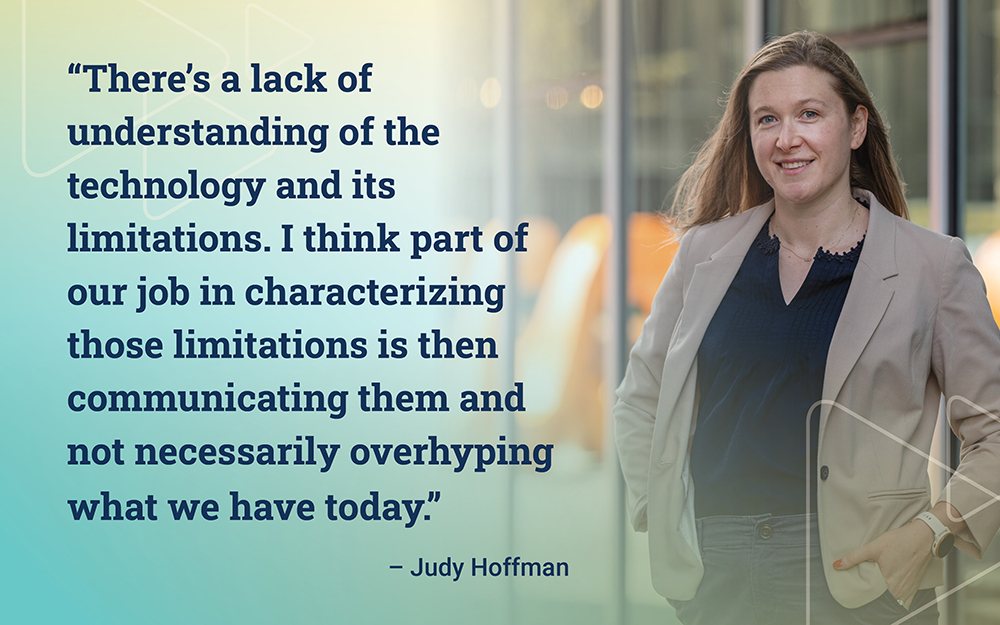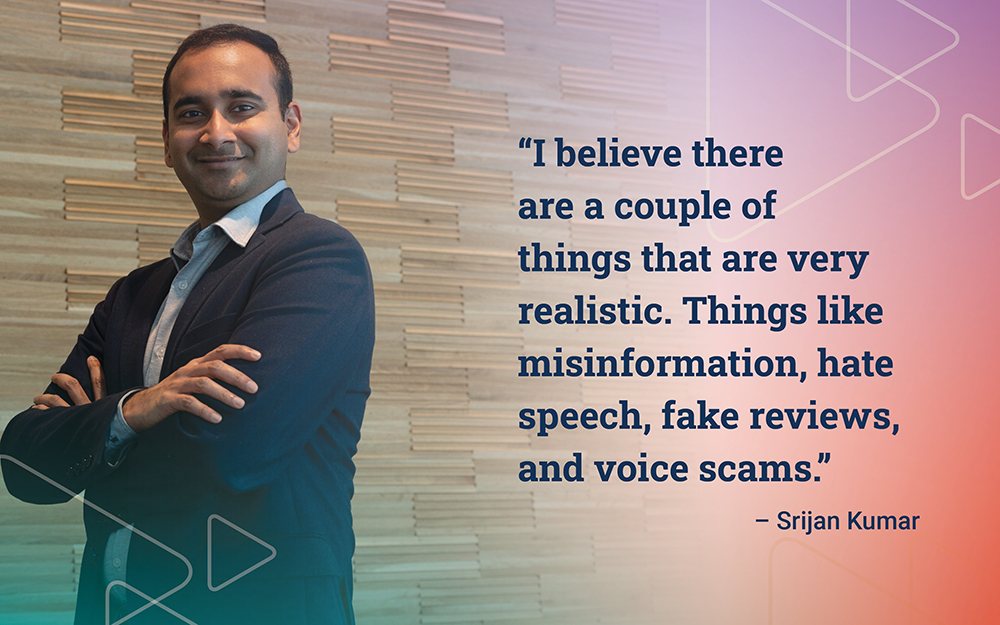AI: Am I … being replaced? Helped? Paranoid?
Experts at Georgia Tech are confronting critical questions about artificial intelligence.
At Georgia Tech, scientists and engineers are studying a topic that has dominated headlines and internet searches of late: artificial intelligence.
AI solutions have the power to become our silent partners in ways that could drastically improve our daily lives — and are already doing it. Yet, in a world where algorithms can sift through data with a precision no human can match, uneasiness stirs.
Georgia Tech researchers are confronting the paradoxes, pitfalls, and potential of AI. They are shedding light on the emerging role of AI in our lives and answering questions about how humans and machines will coexist in the future.
Many Georgians might be asking, “Will AI replace me?”
 “Every time there’s a disruptive technology, it changes the types of jobs people have,” said Judy Hoffman, assistant professor in the School of Interactive Computing. “Some jobs will go away and some new jobs will emerge, but until we’re truly in it, it’s hard to predict exactly what those jobs are.”
“Every time there’s a disruptive technology, it changes the types of jobs people have,” said Judy Hoffman, assistant professor in the School of Interactive Computing. “Some jobs will go away and some new jobs will emerge, but until we’re truly in it, it’s hard to predict exactly what those jobs are.”
Members of the AI research community say AI will likely become an important part of many occupations. Job seekers who can use AI tools will have a competitive advantage in the marketplace.
“There’s a popular quote going around that I tend to agree with,” said David Joyner, executive director of Online Education and OMSCS in the School of Computing Instruction. “People with AI will replace people without AI.”
The idea that a person must rely on AI assistants to be competitive sounds dystopic at first, until you realize the exact same thing has happened with the emergence of every new technology in the past.
So, an AI program like ChatGPT is helping you, right?
“Writing is hard work. We’re already seeing uses of this to polish up people’s writing, make the writing better, make it clear, make communication better,” said Mark Riedl, professor in the School of Interactive Computing and associate director of the Georgia Tech Machine Learning Center.
 Calculators were once seen as tools that might undermine our mathematical skills, but now they are ubiquitous in classrooms. Instead of spending time on repetitive tasks, students can explore the why and how behind the numbers.
Calculators were once seen as tools that might undermine our mathematical skills, but now they are ubiquitous in classrooms. Instead of spending time on repetitive tasks, students can explore the why and how behind the numbers.
“Having AI assist in the classroom would allow educators to redirect their energy toward more individualized engagement with students,” Joyner said.
The power of new technology can be exaggerated, and AI in television and film is often antagonistic toward humans. Does that mean we should be paranoid?
“A lot of people are talking about this Terminator-like scenario where AI is going to kill us all,” said Srijan Kumar, assistant professor in the School of Computational Science and Engineering. “I think that’s a bit far-fetched.
But Kumar finds some representations realistic: “Things like misinformation, hate speech, fake reviews, and voice scams.” AI-powered tools can produce large volumes of content at an unprecedented speed and can spread rapidly across online platforms.
“What we are going to see is probably an existential threat, because it’ll be so subtle,” said Munmun de Choudhury, associate professor in the School of Interactive Computing. “We still don’t understand when things can go wrong or things can break with AI.”
Read more from Georgia Tech experts about the future of AI.







